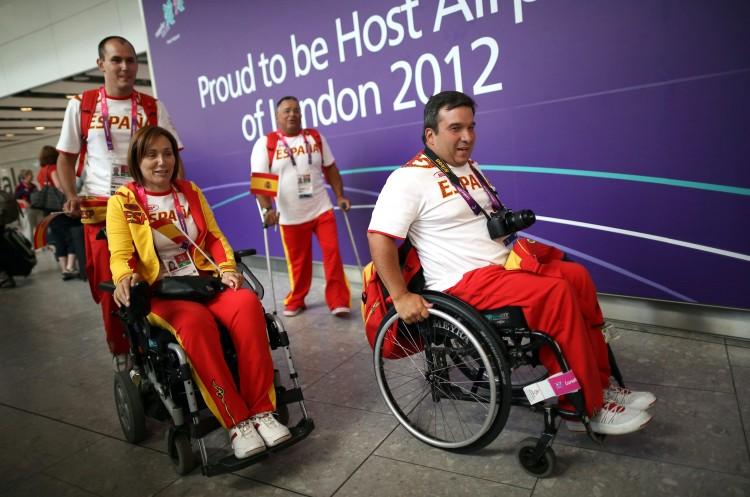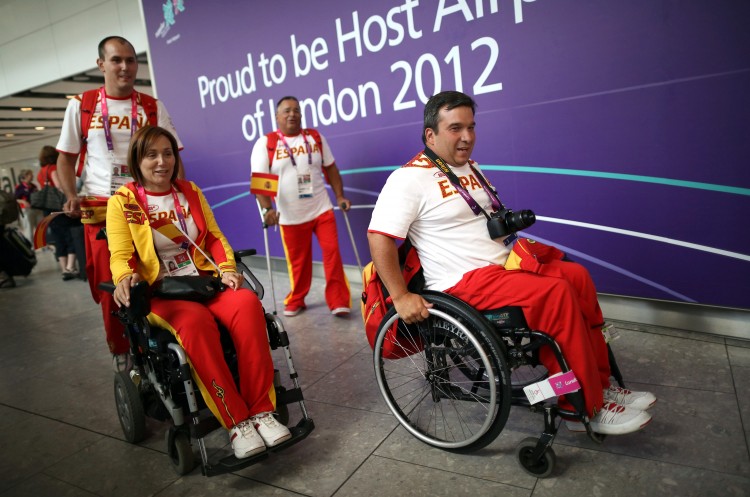With the Olympics over, let the Paralympic Games begin.
On Aug. 29, the 14th Paralympics begin in London. The media coverage and public interest looks to be unprecedented, and many feel that the Paralympics are a welcome alternative to the increased commercialization of the Olympics.
Yet, for a movement whose goal is to empower disabled athletes all over the world, increased attention could be a double-edged sword, bringing both a greater public awareness of disability issues, and increased commercialization and competitiveness.
London could be considered the birthplace of the Paralympic movement, as that is where the first competition for disabled athletes coinciding with the Olympic Games took place—that was in 1948 at the Stoke Mandeville Games. The first official Paralympics were held in Rome in 1960.
Although it still gets nowhere near the hype of the Olympics, the profile of the Paralympics has been rising, and the upcoming London Games are close to being the first-ever genuine sellout. With only about 10 percent of the 2.5 million tickets yet unsold, organizers expect it to sell out before the opening, says Dr. Ian Brittain, author and project manager of “Peace, Olympics, Paralympics” at the Centre for Peace and Reconciliation Studies at Coventry University in the U.K.
Dr. Brittain, one of the U.K.’s leading experts on Paralympic and disability sport, says that the media coverage leading up to the Paralympics has been unprecedented. Host broadcaster Channel 4 has been drumming up interest with marketing campaigns sporting slogans like “Meet the superhumans.”
But although the interest is greater than ever, there are notable differences between countries, according to Dr. Brittain.
“The level of public attention varies greatly from country to country depending upon numerous factors including religious and cultural views of people with disabilities and the level of development of sport for people with disabilities,” he said.
The tone of the media coverage is also an issue. Carla Silva, Ph.D. research student at Loughborough University, School of Sport, Exercise, and Health Sciences, herself a coach and player of sitting volleyball, has some reservations about what she perceives as a lingering focus on the impairments of the athletes. This is despite an overall positive trend, where Paralympians are accepted as real athletes and the public becomes more informed about disability sports.
“The Channel 4 coverage has been playing an educational role, although it is still using images that picture disability as ‘abnormal,’” she said. “It seems it is difficult to talk about the Paralympics while giving the disability factor a more neutral tone.”
Most would probably agree that the Olympics have changed quite a bit from the relatively friendly amateurism of the early days, to the cutthroat professional competition and massive media exposure of today.
The unspoken question of what has become of the Olympic spirit of participation, excellence, and international brotherhood seems to hound the games wherever they go these days. The recently finished London Olympics had its share of scandals, such as the badminton doubles’ teams who desperately tried to loose their games in order to get an easier opponent in the next round.
Dr. Brittain recognizes that many people may feel that the Paralympics are purer and nobler in spirit than the Olympics, and that this can, to some degree, explain the increased public interest in the games.
No athlete has embodied this spirit more, nor brought as much public attention to disabled athletics, as South African Olympian and champion Paralympian, Oscar Pistorius—the “Blade Runner.” In his Olympic debut this year, Pistorius’s 8th place finish in the men’s 400-meter sprint semifinal, was a moment of pure triumph for the double amputee and indeed the world. At the games his name became virtually synonymous with words like inspiration.
Despite the current image of the Paralympics as being more pure, Dr. Brittain says this should not lead to the misconception that Paralympians are inherently less ruthless competitors.
“You have to remember that people with disabilities are, first and foremost, people just like the rest of us,” he said. “They are socialized in much the same way as everyone else and so it is little surprise that they should want to win as much as any Olympian and that a few will even go as far as some of the more notorious Olympians in order to taste victory.”
One rather disturbing example of extreme competitiveness among Paralympians is the phenomenon of “boosting.” Boosting is when athletes with spinal injury self-inflict harm to parts of their bodies below the injury (which can’t feel any pain)—such as breaking toes and tightening leg restraints—in order to raise their blood pressure. This is otherwise hard to achieve with normal training for people with spinal injuries, and it thus gives them a competitive edge.
“They might not get anywhere near the same levels of reward or adulation,” Dr. Brittain said of the Paralympians, as compared to Olympians. “But when you consider that in most countries the majority of people with disabilities live very isolated lives at or near the poverty line, it is little surprise that some will stoop to any methods to achieve recognition and an improved lifestyle.”
Carla Silva is also concerned that the increased commercialization of the games has other consequences for the Paralympic spirit.
Impairment classes have been combined to reduce the number of events, for instance, making it harder for the more severely disabled athletes to compete. Silva also thinks that the Paralympics should strive to find more of a spirit of its own.
“It would be important, for instance, if new kinds of sports appeared, designed to match the characteristics of the different bodies of athletes with impairments. This would send an important message to the wider society in terms of embracing difference, instead of people that are different being the ones always having to adapt,” she says.
According to Silva, the social importance of the Paralympics cannot be disconnected from disability issues in general.
“The social empowerment of athletes and people with impairments in general is a core goal of the Paralympic movement, which must not be forgotten. If raising the profile of Paralympics happens at the expense of this goal, then the spirit of Paralympic Movement is deeply threatened. Paralympics must be a celebration of difference, which may be in opposition to commercial interests,” she said.
The Epoch Times publishes in 35 countries and in 19 languages. Subscribe to our e-newsletter.





